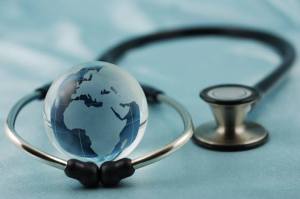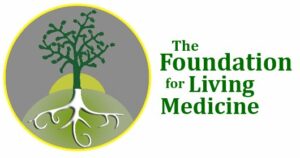
“Hearing metaphoric utterances is enough to change the way we think about a concept… When we hear the phrase ‘win the battle against cancer,’ it forces us to think of cancer as if it’s an enemy that we are at war with,” said David Hauser, a University of Michigan doctoral student in psychology. According to Mr. Hauser and a colleague, Norbert Schwarz from the University of Southern California, exposure to and use of warring metaphors about cancer can lessen individuals’ attentions to preventing cancer in their lives.
This hypothesis has been backed up by recent studies at the University of Michigan. In one of the recent studies, Hauser and Schwartz probed the research participants by asking them to designate cancer-prevention activities that they would take in order to prevent cancer. The question for the first group in the study was phrased in a fighting/warring fashion, such as “What things would you do to fight against developing cancer?” The question given to the second group did not contain any warring metaphors. Interestingly, according to the researchers, the group given the warring metaphors identified significantly fewer ‘limitation-related’ prevention behaviors.
Mr. Schwarz concluded: “Enemy metaphoric language for cancer diminishes people’s intentions for these types of prevention behaviors. Importantly, these negative effects of enemy metaphors on prevention behaviors are not accompanied by a positive effect on intentions to undertake screening or treatment behaviors.” (To read more in the Science Daily article, click here.)
The above findings directly correlate with the message of Living Medicine. According to Dr. Gladys, since World War II, Medicine has used the confrontational metaphors of warring and killing to describe its being-ness. For example, we kill bacteria, eliminate aids, kill cancer, and we have anti-biotics and anti-convulsives. In short, the language of Medicine is against life itself.
Our words matter. Our thoughts matter. How we view our conceptual frameworks matter. The metaphors of Living Medicine can change our concepts about ourselves and how we treat our health. This is WHY Living Medicine represents such a paradigm shift… and such an important and vast change in how we view medicine… AND how it should be practiced.
Living Medicine is about respecting the WHOLENESS of life and treating disease as only one of the facets of our lives. We may have a disease and have to learn how to live with it, but it is about the process of living our lives (with the disease as part of that process) and coming to our spiritual wholeness.
So many times, the warring medical world may claim when a cancer patient dies that ‘the person had lost their battle to cancer.’ But instead, in the Living Medicine world, that person would NOT have been seen as having lost a war, but would have been seen as having lived a WHOLE, active, and rich life.
Some Cancer Prevention Ideas
Here are a few prevention ideas presented by Prevention Magazine:
Burn off your risk
Moderate exercise such as brisk walking 2 hours a week cuts risk of breast cancer 18%. Regular workouts may lower your risks by helping you burn fat, which otherwise produces its own estrogen, a known contributor to breast cancer.
– Published November 2011, Prevention
Do a folic acid check
The B vitamin, essential for women who may become or are pregnant to prevent birth defects, is a double-edged sword when it comes to cancer risk. Consuming too much of the synthetic form (not folate, found in leafy green veggies, orange juice, and other foods) has been linked to increased colon cancer risk, as well as higher lung cancer and prostate cancer risks. Rethink your multivitamin, especially if you eat a lot of cereal and fortified foods. A CDC study discovered that half of supplement users who took supplements with more than 400 mcg of folic acid exceeded 1,000 mcg per day of folic acid. Most supplements pack 400 mcg. Individual supplements (of vitamin D and calcium, for instance) may be a smarter choice for most women who aren’t thinking of having kids.
– Published November 2011, Prevention
Up your calcium intake
Milk’s main claim to fame may also help protect you from colon cancer. Those who took calcium faithfully for 4 years had a 36% reduction in the development of new precancerous colon polyps 5 years after the study had ended, revealed Dartmouth Medical School researchers. (They tracked 822 people who took either 1,200 mg of calcium every day or a placebo.) Though the study was not on milk itself, you can get the same amount of calcium in three 8-ounce glasses of fat-free milk, along with an 8-ounce serving of yogurt or a 2- to 3-ounce serving of low-fat cheese daily.
– Published November 2011, Prevention
For more cancer prevention ideas, refer to the Prevention Magazine online article, 20 Ways to Never Get Cancer.
